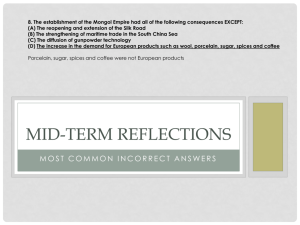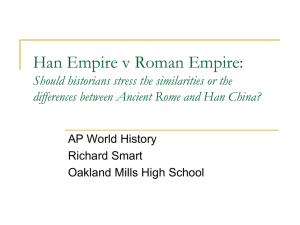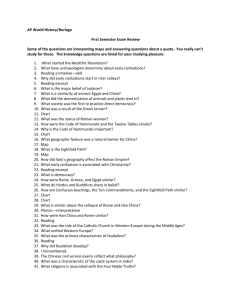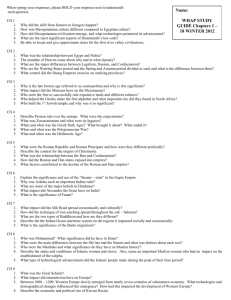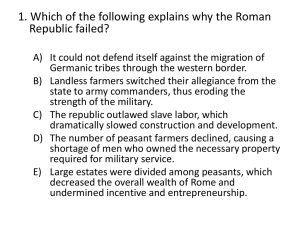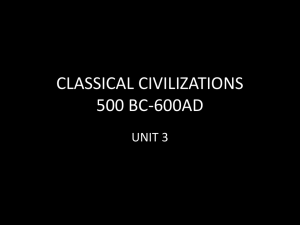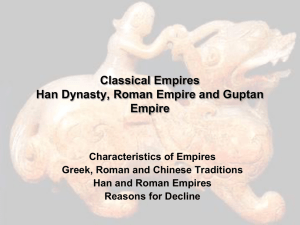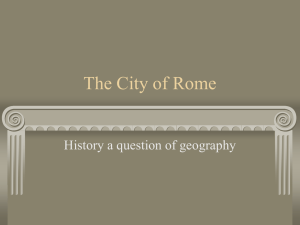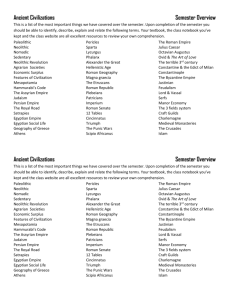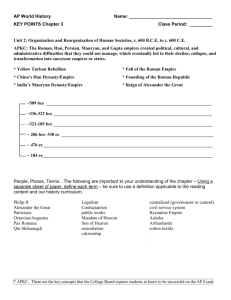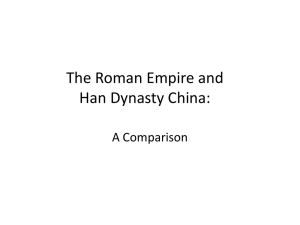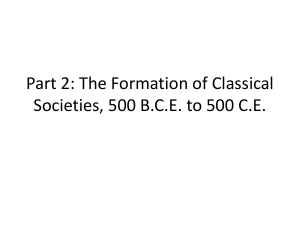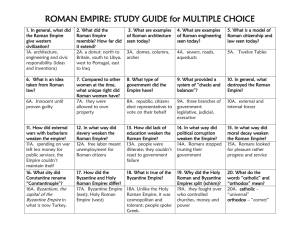The Fall of Classical Empires
advertisement
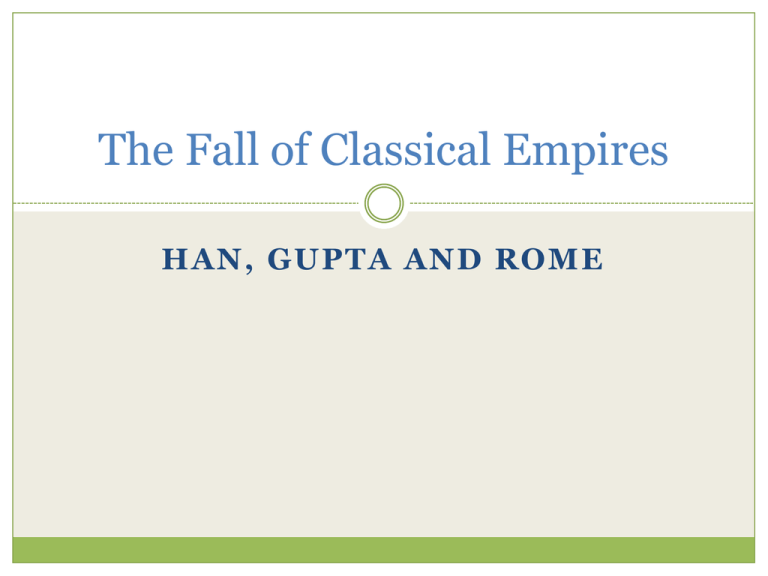
The Fall of Classical Empires HAN, GUPTA AND ROME Reasons for the Fall of the Han Empire Social: Landholding elite held all of the power Disease Political: Political fighting between eunuchs, Confucian scholars and nobles Government corruption and bribery Power in the hands of local landholders and governors (decentralization) Because of no centralized power, China was vulnerable Political and Social: Only wealthy elite could gain political position Reasons for the Fall of the Han Empire Cultural Challenged by arrival of Buddhism Economic: Crop failure, flooding -9 million die Failure to implement land reform Reasons for the fall of the Roman Empire Social: Invasions from Germanic tribes The expansion of slavery Decline in Roman civic duty Moral decay The decline of patriotism Reasons for the fall of the Roman Empire Cultural State not united by religion or philosophy Divided by language Latin in west, Greek in east Christianity challenges traditional Roman institutions Reasons for the fall of the Roman Empire Economic: Dependence on foreign products Traditional work ethic declined Decline of cities’ infrastructure Trade deficit The high cost of military, welfare and government Class economic warfare between rich and poor Unequal taxation The small farm disappears Reasons for the Fall of the Roman Empire Political: Problems of succession (the next emperor) Empire became too large for the government, and reform came too little and too late Government became dominated by the rich and military elites Citizens lost their interest in the government The military lost its prestige Reasons for the Fall of the Gupta Empire Political Inability to centralize the Raj princes Because of decentralization, no Indian leaders to unify the subcontinent Hun invaders from the North Aftermath Han Confucianism is able to hold society together despite the collapse of the government Note: 3 centuries before next united dynasty - Tang Note: No such self-sacrificing mentality existed in the western Classical Empires Aftermath Roman The Eastern Roman Empire would adopt Christianity as the state religion, and merge religion and politics. The Western Empire did not do this, so their was constant fighting between the Pope and kings The east was older, richer and more stable than the west, with larger and most prosperous cities Trade and commerce flourish in the east Law and order existed in the east prior to Roman government The east did not have to deal with foreign invaders The west had foreign mercenaries working in their military ranks Aftermath Gupta Caste system holds society together Hinduism gains against Buddhism Economic prosperity continues Regional factionalism prevents unification of sub-continent Note: India not united until British Raj Comparison of Collapse Students should be able to discuss similarities and differences in the following areas: Political corruption and infighting Decentralization Foreign invaders Social decay Disease (Han and Rome) Change in religious or philosophical systems So, what did they have in common? Reasons for collapse of classical empires: Economic Social Political Environmental


